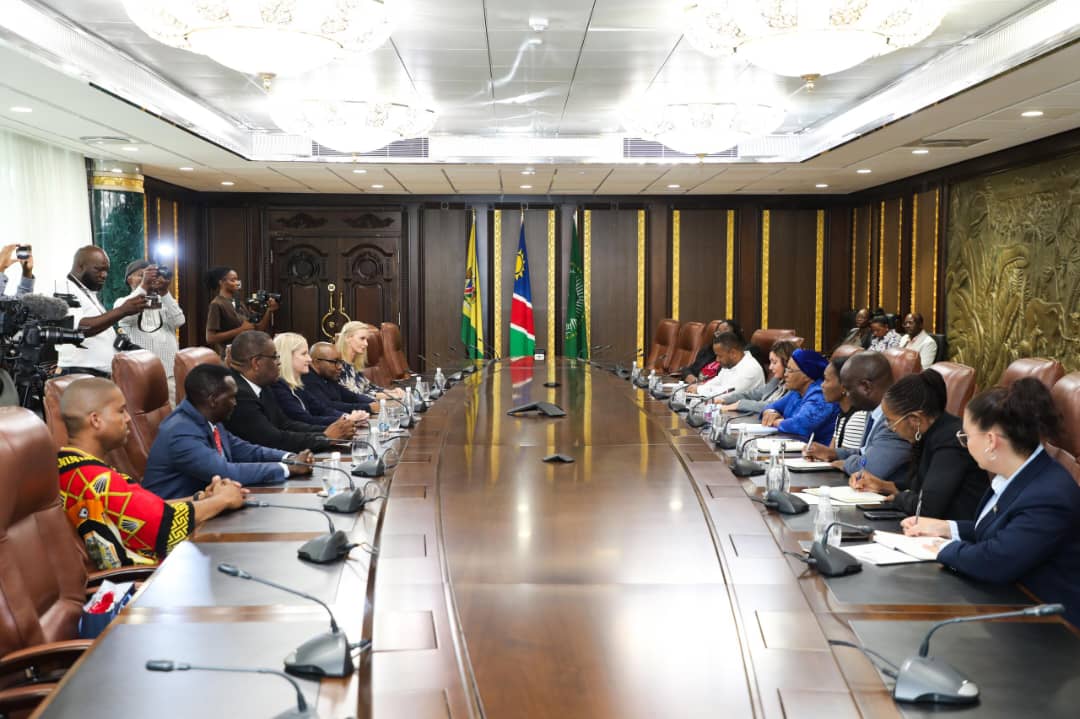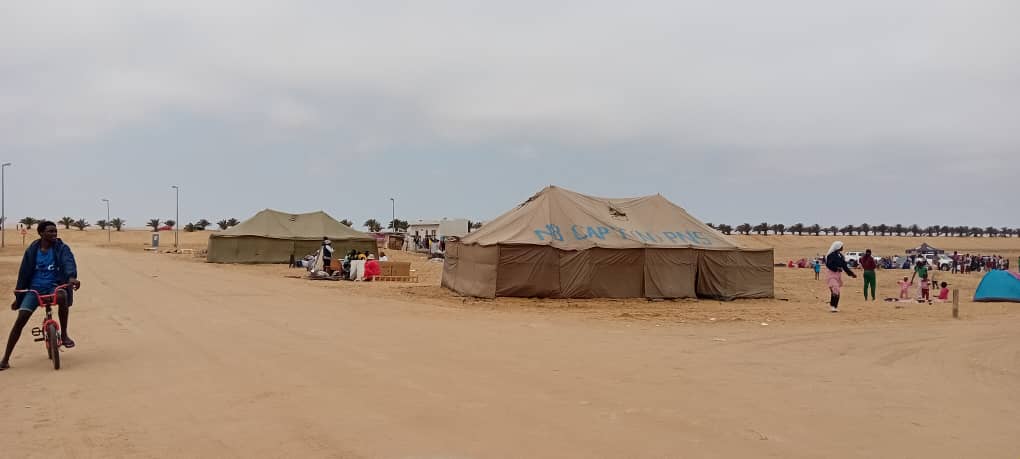MINISTRY of Mines and Energy officials responsible for vetting licence applications appear to have made no effort to establish the credentials of Zackey Nujoma’s technical partners in a uranium venture, Senior Counsel FH Odendaal charged in court on Tuesday.
There was also no provision in the Minerals and Exploration Act that allowed for Minister Errki Nghimtina to declare a moratorium on new uranium licences. It appeared to have been done only shortly after the Ancash application was pushed through, Odendaal submitted to Acting Judge John Manyarara.The accusations came during the second day of legal arguments over what aspects would eventually be heard by the High Court when the matter goes to trial early next year.Odendaal was referring to Nujoma’s company Ancash’s backers as listed in his application for the rights to explore for uranium at Hakskeen, which listed Mega Diamonds Development (Pty) of the British Virgin Island and Natural Earth of Hong Kong.Odendaal, on behalf of Ranga Haikali’s Erongo Nuclear Fuel (Pty), raised questions over the reputation of Vito Palazzolo, also known as Roberto von Palace-Kolbatshenko, who allegedly made an offer to invest US$10 million in Nujoma’s venture.Palazzolo made the offer on behalf of Mega Diamond Development in a letter addressed to Ancash at the time.This led to Odendaal to question whether any effort was made by the office of Mining Commissioner Erasmus Shivolo to establish who this person was, and whether he had the financial wherewithal as purported in the application.No financial statements were attached to back the offer of the US$10 million (about N$70 million at the time), he noted.Questions also had to be asked about Ancash’s final shareholding: in terms of the original application, Mega Diamonds was to hold 60 per cent and Nujoma 40 per cent, but this later became 90 per cent for Mega Diamonds, with Nujoma only retaining 10 per cent, Odendaal noted.Advocate Theo Barnard, on behalf of the Ministry, said the “Von Palace-Kolbatschenko” referred to in Ancash’s company documentation referred to “Peter” (the son of Robert), who was not the same person Odendaal was referring to.As for Erongo’s averment that Black Range Mining (BRM – which entered into a JV with Haikali) that they were not given a fair chance to state their side, this was untrue as several apologetic letters from Reefton’s chairman Bradley Moore to the Ministry made clear, Barnard submitted.The facts were that Reefton were the real owners of BRM and had made a misleading public statement to their own investors of a “sensational uranium” discovery on March 18 2005, he argued.The discovery was neither new – the existence of uranium in the Hakskeen area had been known since the 1970s – and Reefton/BRM had no rights to explore for uranium as their licence only covered other minerals, he said.Reefton/BRM’s application to have uranium included in their Hakskeen concession was refused because they had abused their rights – and Reefton/BRM’s management clearly knew this, he argued.Erongo’s argument that the Minister had erred in basing his decision on “false newspaper reports” (as claimed by Erongo) was therefore immaterial, and evidence in this regard was not relevant, he said.As for charges of the Ministry allowing plagiarism of data first provided by Reefton/BRM in support of their own application, this was also not relevant as Reefton/BRM’s application had been turned down, he said.* John Grobler is a freelance journalist; 081 240 1587It appeared to have been done only shortly after the Ancash application was pushed through, Odendaal submitted to Acting Judge John Manyarara.The accusations came during the second day of legal arguments over what aspects would eventually be heard by the High Court when the matter goes to trial early next year.Odendaal was referring to Nujoma’s company Ancash’s backers as listed in his application for the rights to explore for uranium at Hakskeen, which listed Mega Diamonds Development (Pty) of the British Virgin Island and Natural Earth of Hong Kong.Odendaal, on behalf of Ranga Haikali’s Erongo Nuclear Fuel (Pty), raised questions over the reputation of Vito Palazzolo, also known as Roberto von Palace-Kolbatshenko, who allegedly made an offer to invest US$10 million in Nujoma’s venture.Palazzolo made the offer on behalf of Mega Diamond Development in a letter addressed to Ancash at the time.This led to Odendaal to question whether any effort was made by the office of Mining Commissioner Erasmus Shivolo to establish who this person was, and whether he had the financial wherewithal as purported in the application.No financial statements were attached to back the offer of the US$10 million (about N$70 million at the time), he noted.Questions also had to be asked about Ancash’s final shareholding: in terms of the original application, Mega Diamonds was to hold 60 per cent and Nujoma 40 per cent, but this later became 90 per cent for Mega Diamonds, with Nujoma only retaining 10 per cent, Odendaal noted.Advocate Theo Barnard, on behalf of the Ministry, said the “Von Palace-Kolbatschenko” referred to in Ancash’s company documentation referred to “Peter” (the son of Robert), who was not the same person Odendaal was referring to.As for Erongo’s averment that Black Range Mining (BRM – which entered into a JV with Haikali) that they were not given a fair chance to state their side, this was untrue as several apologetic letters from Reefton’s chairman Bradley Moore to the Ministry made clear, Barnard submitted.The facts were that Reefton were the real owners of BRM and had made a misleading public statement to their own investors of a “sensational uranium” discovery on March 18 2005, he argued.The discovery was neither new – the existence of uranium in the Hakskeen area had been known since the 1970s – and Reefton/BRM had no rights to explore for uranium as their licence only covered other minerals, he said.Reefton/BRM’s application to have uranium included in their Hakskeen concession was refused because they had abused their rights – and Reefton/BRM’s management clearly knew this, he argued.Erongo’s argument that the Minister had erred in basing his decision on “false newspaper reports” (as claimed by Erongo) was therefore immaterial, and evidence in this regard was not relevant, he said.As for charges of the Ministry allowing plagiarism of data first provided by Reefton/BRM in support of their own application, this was also not relevant as Reefton/BRM’s application had been turned down, he said. * John Grobler is a freelance journalist; 081 240 1587
Stay informed with The Namibian – your source for credible journalism. Get in-depth reporting and opinions for
only N$85 a month. Invest in journalism, invest in democracy –
Subscribe Now!










